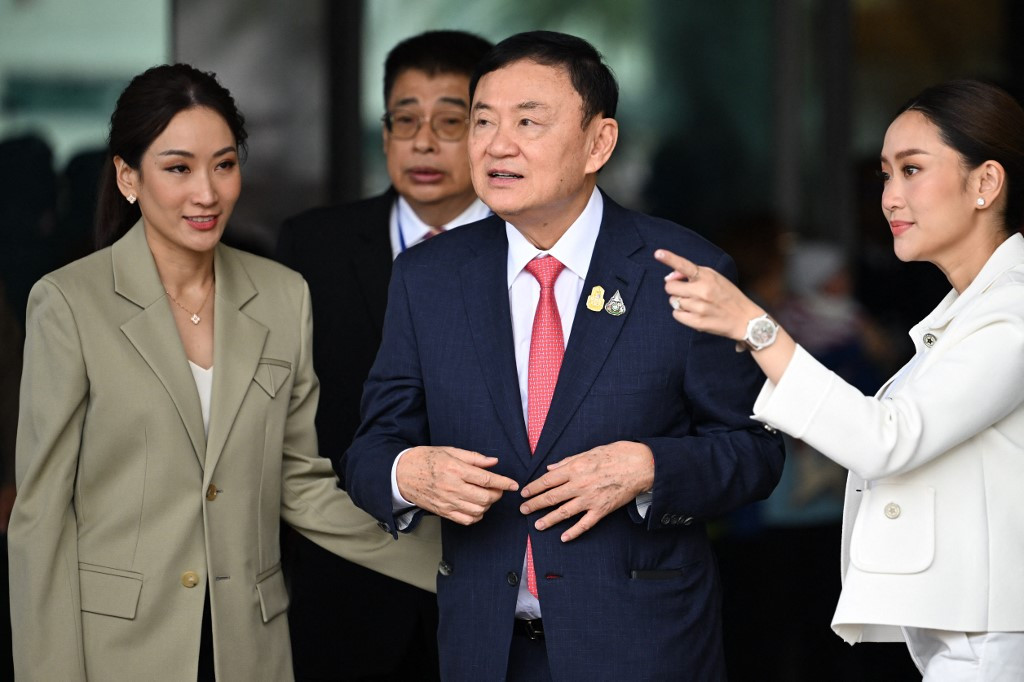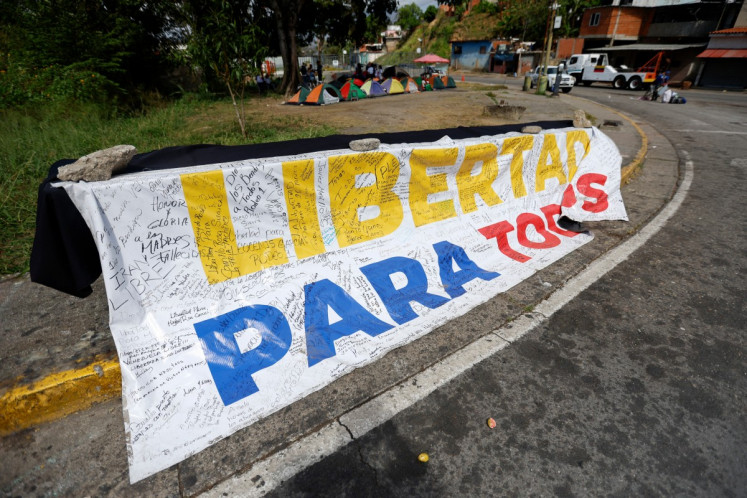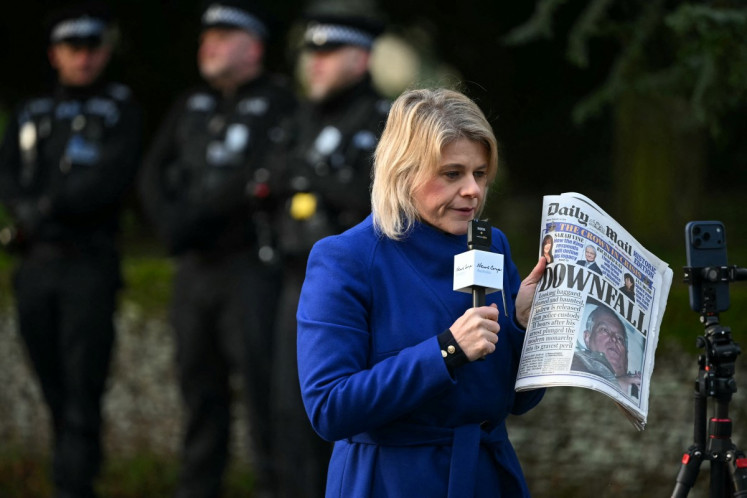Popular Reads
Top Results
Can't find what you're looking for?
View all search resultsPopular Reads
Top Results
Can't find what you're looking for?
View all search resultsRevered and reviled, Thaksin Shinawatra returns home
"If I am fortunate enough," wrote Thaksin, a deeply polarising telecoms billionaire who broke the mould of Thai politics, "I will return and die on Thai soil."
Change text size
Gift Premium Articles
to Anyone
W
hen Thailand's deposed prime minister Thaksin Shinawatra went into self-imposed exile in 2008 facing a raft of corruption charges following his ouster in a military coup, he issued a hand-written note.
"If I am fortunate enough," wrote Thaksin, a deeply polarising telecoms billionaire who broke the mould of Thai politics, "I will return and die on Thai soil."
On Tuesday, the 74-year-old flew into Bangkok on a private jet, just hours before the latest incarnation of the populist party he founded was due to make a bid for power in an alliance with parties linked to the generals who ousted the last pro-Thaksin government in 2014.
Thaksin has been Thailand's most prominent politician for decades, retaining outsized influence despite the years away.
"It closes a crucial chapter in Thailand's politics," Thitinan Pongsudhirak, a political scientist at Chulalongkorn University, said of Thaksin's return.
"He has been such a dominant force over the past two decades."
To the rural masses, Thaksin is loved as the first leader to pay attention to the needs of millions living beyond Bangkok's bright lights.
To many in the urban middle class and the royalist elite, Thaksin was a crony capitalist who plundered the economy while in power from 2001 until he was ousted in a 2006 military coup and later led a protest movement that reduced parts of Bangkok to smouldering ruins in 2010.
A government led by his sister, Yingluck Shinawatra, swept to power in a 2011 election, only to be ousted in a 2014 coup after relentless street protests led by his conservative enemies.
Thaksin's rivals accused him of winning power with handouts to rural voters. After his initial election win in 2001, he formed the first elected government to serve a full term, after which it was re-elected.
Critics accused him of abusing his electoral mandate to systematically dismantle constitutional checks and balances, while cementing his authoritarian rule.
Media watchdogs said he oversaw a steady erosion of press freedom. A 2003 war on drugs in which 2,500 people were killed boosted his image as a crime-buster but sparked outrage from human rights groups, who said he was riding roughshod over civil liberties.
'CEO Prime Minister'
Born into a family of ethnic Chinese silk merchants in 1949 in the northern city of Chiang Mai, Thaksin became a policeman in 1973 before pursuing graduate degrees in the United States.
On his return, he established a computer dealership that he grew into Thailand's largest mobile network, Shin Corporation, that laid the foundation for his rise to become one of the country's richest men.
A shrewd operator who rarely minces his words, an increasingly wealthy Thaksin entered politics in the mid-1990s, initially serving as foreign minister and then deputy prime minister.
In 1998, he founded the Thai Rak Thai (Thais Love Thais) that led him to power, starting off a premiership in 2001 during which he expanded spending on healthcare, rural development and farming subsidies, his "Thaksinomics".
But the brash Thaksin, who called himself Thailand's first "CEO prime minister", faced royalist accusations that he was undermining the revered monarchy, which he denied.
Simmering anger exploded in 2006 when he sold his shares of Shin Corporation for 73.3 billion baht ($2.08 billion) to Singapore's Temasek.
His opponents complained of conflict of interest, alleging that the prime minister's family did not pay tax on capital gains from the deal.
The military leveraged middle class anger to stage a bloodless coup in September 2006 when Thaksin was abroad, but his loyalists kept winning general elections.
Instead of fighting the corruption charges, which he said were politically motivated, Thaksin skipped bail and went into self-exile initially in Britain, where he bought Premier League club Manchester City. His critics called the purchase a political gimmick.
He returned to Thailand in early 2008 to face the various legal charges filed against him but he went into self-exile months later.
Thaksin faces years in jail after convictions of graft and abuse of power.










